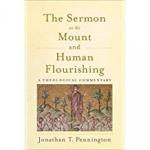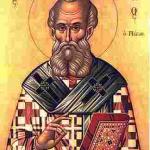A fantastic article by Andrew Sullivan over at Intelligencer on “America’s New Religion.”
Yes, many Evangelicals are among the holiest and most quietly devoted people out there. Some have bravely resisted the cult. But their leaders have turned Christianity into a political and social identity, not a lived faith, and much of their flock — a staggering 81 percent voted for Trump — has signed on. They have tribalized a religion explicitly built by Jesus as anti-tribal. They have turned to idols — including their blasphemous belief in America as God’s chosen country. They have embraced wealth and nationalism as core goods, two ideas utterly anathema to Christ. They are indifferent to the destruction of the creation they say they believe God made. And because their faith is unmoored but their religious impulse is strong, they seek a replacement for religion. This is why they could suddenly rally to a cult called Trump. He may be the least Christian person in America, but his persona met the religious need their own faiths had ceased to provide. The terrible truth of the last three years is that the fresh appeal of a leader-cult has overwhelmed the fading truths of Christianity.
This is why they are so hard to reach or to persuade and why nothing that Trump does or could do changes their minds. You cannot argue logically with a religion — which is why you cannot really argue with social-justice activists either. And what’s interesting is how support for Trump is greateramong those who do not regularly attend church than among those who do.
And so we’re mistaken if we believe that the collapse of Christianity in America has led to a decline in religion. It has merely led to religious impulses being expressed by political cults. Like almost all new cultish impulses, they see no boundary between politics and their religion. And both cults really do minimize the importance of the individual in favor of either the oppressed group or the leader.
And this is how they threaten liberal democracy. They do not believe in the primacy of the individual, they believe the ends justify the means, they do not allow for doubt or reason, and their religious politics can brook no compromise. They demonstrate, to my mind, how profoundly liberal democracy has actually depended on the complement of a tolerant Christianity to sustain itself — as many earlier liberals (Tocqueville, for example) understood.
It is Christianity that came to champion the individual conscience against the collective, which paved the way for individual rights. It is in Christianity that the seeds of Western religious toleration were first sown. Christianity is the only monotheism that seeks no sway over Caesar, that is content with the ultimate truth over the immediate satisfaction of power. It was Christianity that gave us successive social movements, which enabled more people to be included in the liberal project, thus renewing it. It was on these foundations that liberalism was built, and it is by these foundations it has endured. The question we face in contemporary times is whether a political system built upon such a religion can endure when belief in that religion has become a shadow of its future self.
Will the house still stand when its ramparts are taken away? I’m beginning to suspect it can’t. And won’t.
















